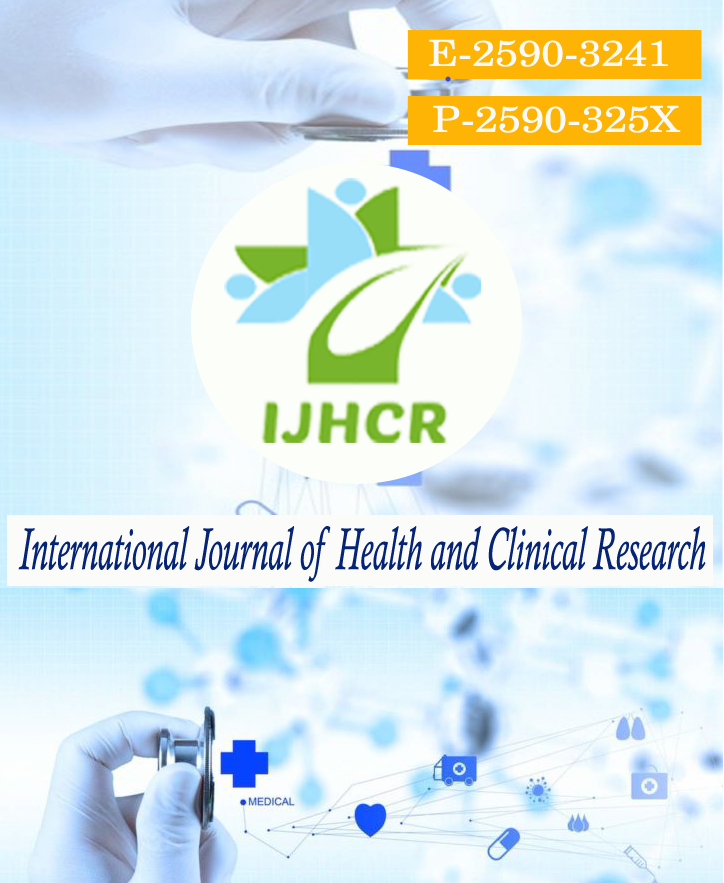
International Journal of Health and Clinical Research
Yazarlar: Kunal ., Akriti Kumari, M.H. Khan, Sagar Rajak
Konular:-
Anahtar Kelimeler:Metabolic syndrome,Thyroid stimulating hormone,Hypothyroidism,Central obesity.
Özet: Background: Metabolic syndrome (Met S) comprise of a group of interconnected metabolic abnormalities, including increased waist circumference, glucose intolerance, systemic hypertension, and dyslipidemia. Recent evidences show metabolic syndrome being increasingly linked to other endocrine abnormalities like diabetes, polycystic ovary disease including thyroid disorder. Undiagnosed TD in patients of MetS may compound to the cardiovascular risk already posed by the components of MetS, thereby increasing mortality rates. Aim and objectives: Our study aims to evaluate the pattern of Thyroid disorder (TD) in patients with Met S in comparison to healthy controls and to correlate the relationship between the components of MetS and TD. Material and Methods: This Cross-sectional study was done the Department of Medicine, Vardhman Institute of Medical Sciences, Pawapuri, Bihar, India for 10 months. 100 patients with metabolic syndrome (MetS) who fulfilled the National Cholesterol, Education Program, Adult Treatment Panel III (NCEP-ATP III 2001) criteria were included in the study group (MetS group). Results: The totals of 150 subjects were included in this study. Study group (MetS group) consist of 100 subjects (53 female, 47 male, mean age 53.04±8.31) and control group (Non-MetS) included 50 subjects (19 female and 31 male, mean age 49.14±11.07).The two groups were not significant different with respect to dietary habits and life style (P>0.05) while significantly greater number of subjects in the metabolic group had sex, education level and thyroid dysfunctions (P<0.001). Of the 100 metabolic subjects, 28 (28%) had SCH, 14 (14%) had clinical hypothyroidism, 3 (3%) had subclinical hyperthyroidism, and 55 (55%) were euthyroid. Hyperthyroidism was not present in any of the subject. The overall prevalence of the thyroid dysfunctions was 45(45%) in study group. Conclusion: We concluded that the prevalence of thyroid dysfunction was high in the patients with MetS. Keywords: Metabolic syndrome, Thyroid stimulating hormone, Hypothyroidism, Central obesity.